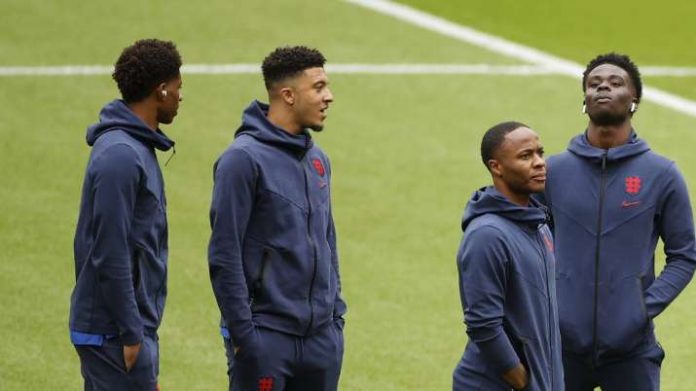The Euro’s final between Italy and England was meant to be a fun and entertaining night for everyone, and although this is how it started, it’s not how it ended. Following a tough loss that came down to penalty kicks, English spectators viciously turned on the players that they thought had cost England the title.
Social media as the battleground
England’s less tolerant spectators took to social media to express their anger and frustration at the final score. ‘It’s coming home’ was quickly shelved, and was replaced with a more sinister response. The three players chosen to take the team’s penalty kicks were Marcus Rashford, Jadon Sancho, and Buyako Saka – all non-white players – and, unfortunately, they all missed their shot.
The colour of their skin has no bearing on what skills they have as football players, yet the spectators inexplicably felt differently. They took to social media to spew racist abuse at the players, deciding that their ethnicity was the reason they missed their kicks. The speed at which this racism emerged suggests that it was always there, bubbling beneath the surface waiting for an opportunity to emerge.
Unjust attacks on public images
These players have had their public images attacked unfairly. One racist remark sparked another, and another, and so on, until a snowball of discriminatory hate had formed. With social media allowing instant responses to events, and with it being as far reaching as it is, opinions can quickly gain momentum, and sadly this is what happened here.
Social media can be a great thing, but it does have the capability to enable those with biased viewpoints, and this is an occasion that we’ve seen the negatives of it all.
Moving forward
The spectators that have made these comments and who believe in what they’ve said, need to remember that football is just a game. It’s not a life-changing event – it’ll be largely forgotten about within a matter of weeks, regardless of the outcome. Sport should bring people together for a moment of reprise from the struggles of daily life, to provide a sort of haven for those who need it. It should not be a place that allows racism and discrimination into its world. Of course, the loss was notthe outcome that the English team or fans wanted, but it is no excuse for the behaviour that’s been exhibited since the game.
Taking a stand against the display of racism that’s been seen is just one step in the journey. Education needs to start younger, to inform young people of the fact that racism is not acceptable in any circumstance, to try to nip it in the bud and prevent any child growing up thinking that the colour of their skin holds any superiority or inferiority compared with another person.
The show of support online for all three players has been remarkable, and it’s gone some way to drown out the vitriol that was initially thrown their way. However, it’s clearly not enough. Showing support online after a racist attack feels a little like putting a plaster on the problem. We need to get to the root of why racism is still alive and kicking in 2021, and address the illness rather than the symptoms.
As a nation we can, and should, do better. The UK is often thought of as a place where people can build a better life for themselves, not one where they’ll have racist slurs thrown their way. As horrendous as the events following the Euro’s final have been, they’ve also been a wake-up call for all of us, that the status quo is not good enough. It’s time to stand together with Rashford, Sancho, and Saka and fight back against the racist displays of late.
Olivia Eriksen is a writer and correspondent for the Immigration Advice Service, an organisation of immigration solicitors that provides legal aid to forcibly displaced persons.




